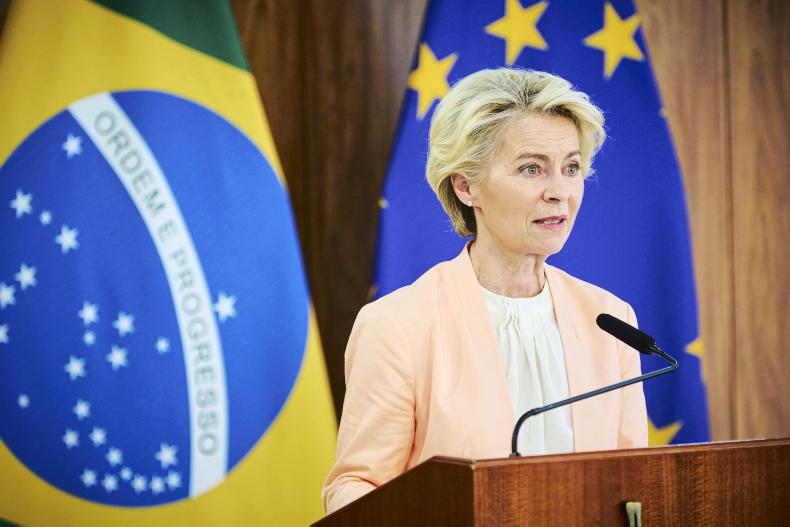It is no secret that I have a certain distaste for soccer. An editorial earlier this year saw me scolded when I suggested the media coverage of Pelé’s death commanded too much airtime over more pertinent (in my view) events.
But you know who I do like? I like Ryan Reynolds. Why? Because he makes me laugh. And because he makes me laugh, I also have a warm feeling toward the soccer club he purchased with fellow actor Rob McElhenney.
For some reason, Wrexham, a place in Wales I had never heard of before the Deadpool actor purchased its football team, has found itself on my bucket list. Their promotion back into the English Football League after 15 years is well documented, as in, there is an actual TV documentary with a second season in the offing.
in the current era of mass and instant media, there are positive and negative beneficiaries
So how did a team that has no real chance of making it to the Premier League turn into one of the most famous clubs globally? In my view, storytelling and creative marketing created positivity, which then brought fans and funding – all buoyed by the cult of personality of the charismatic owners.
As the phrase “cult of personality” tends to be most often used in reference to charismatic but autocratic fascist or communist political leaders, the term developed a strong negative connotation. But in the current era of mass and instant media, there are positive and negative beneficiaries.
Celebrities like Ryan Reynolds – but also politicians like Donald Trump or CEOs like Elon Musk. They are the new harbourers of personality power.
Public image
Maintaining and controlling a public image to cultivate popularity is a key part of public relations. When the veil falls, and it is revealed a celebrity is not actually that nice or doesn’t write all their own music, there is no real harm done as the revelation is inconsequential to most people’s lives. That is the case until, of course, the harbourers of that influence actually inflict harm on the people following them.
We would all happily share our grandmother’s cough syrup recipe with the clarification, “I’m no doctor, but …” while doling out the quantities. However, most of us don’t have a huge PR machine to sell Granny’s unproven formula. Disappointingly, I read this week that once again The Happy Pear franchise had to apologise for comments they provided a platform for on their podcast. This time the harmful narrative linked antibiotics with depression and anxiety. They admitted, after the damage was done, that the comments were made without “appropriate qualification or context.”
Monitoring of the online world has proven problematic but it appears Ireland will have stronger rules on online content with the signing into law of the Online Safety and Media Regulation Act last December. Law firm DLA Piper says the law has the potential to fundamentally change how we consume, contribute and complain about media outlets – “from Netflix to newspapers, from TV to TikTok,” and also hopefully online food pseudoscientists.
Furthermore, perhaps Fox News’s now-settled litigation with voting software company Dominion and the sudden departure of the network’s host Tucker Carlson will serve to remind cults of personality that you can’t always get away with saying whatever you want.
With social media, we face an onslaught of real versus fake. I search for Wrexham for positivity in a negative environment. No harm in that, but the question is: will I recognise if this positivity is no longer real and just what the PR wants me to see and believe?
Read more
Editorial: for one in almost five jobs, it is still worth just asking
Editorial: here we go again - ‘have you any holidays booked yet?’
It is no secret that I have a certain distaste for soccer. An editorial earlier this year saw me scolded when I suggested the media coverage of Pelé’s death commanded too much airtime over more pertinent (in my view) events.
But you know who I do like? I like Ryan Reynolds. Why? Because he makes me laugh. And because he makes me laugh, I also have a warm feeling toward the soccer club he purchased with fellow actor Rob McElhenney.
For some reason, Wrexham, a place in Wales I had never heard of before the Deadpool actor purchased its football team, has found itself on my bucket list. Their promotion back into the English Football League after 15 years is well documented, as in, there is an actual TV documentary with a second season in the offing.
in the current era of mass and instant media, there are positive and negative beneficiaries
So how did a team that has no real chance of making it to the Premier League turn into one of the most famous clubs globally? In my view, storytelling and creative marketing created positivity, which then brought fans and funding – all buoyed by the cult of personality of the charismatic owners.
As the phrase “cult of personality” tends to be most often used in reference to charismatic but autocratic fascist or communist political leaders, the term developed a strong negative connotation. But in the current era of mass and instant media, there are positive and negative beneficiaries.
Celebrities like Ryan Reynolds – but also politicians like Donald Trump or CEOs like Elon Musk. They are the new harbourers of personality power.
Public image
Maintaining and controlling a public image to cultivate popularity is a key part of public relations. When the veil falls, and it is revealed a celebrity is not actually that nice or doesn’t write all their own music, there is no real harm done as the revelation is inconsequential to most people’s lives. That is the case until, of course, the harbourers of that influence actually inflict harm on the people following them.
We would all happily share our grandmother’s cough syrup recipe with the clarification, “I’m no doctor, but …” while doling out the quantities. However, most of us don’t have a huge PR machine to sell Granny’s unproven formula. Disappointingly, I read this week that once again The Happy Pear franchise had to apologise for comments they provided a platform for on their podcast. This time the harmful narrative linked antibiotics with depression and anxiety. They admitted, after the damage was done, that the comments were made without “appropriate qualification or context.”
Monitoring of the online world has proven problematic but it appears Ireland will have stronger rules on online content with the signing into law of the Online Safety and Media Regulation Act last December. Law firm DLA Piper says the law has the potential to fundamentally change how we consume, contribute and complain about media outlets – “from Netflix to newspapers, from TV to TikTok,” and also hopefully online food pseudoscientists.
Furthermore, perhaps Fox News’s now-settled litigation with voting software company Dominion and the sudden departure of the network’s host Tucker Carlson will serve to remind cults of personality that you can’t always get away with saying whatever you want.
With social media, we face an onslaught of real versus fake. I search for Wrexham for positivity in a negative environment. No harm in that, but the question is: will I recognise if this positivity is no longer real and just what the PR wants me to see and believe?
Read more
Editorial: for one in almost five jobs, it is still worth just asking
Editorial: here we go again - ‘have you any holidays booked yet?’










SHARING OPTIONS